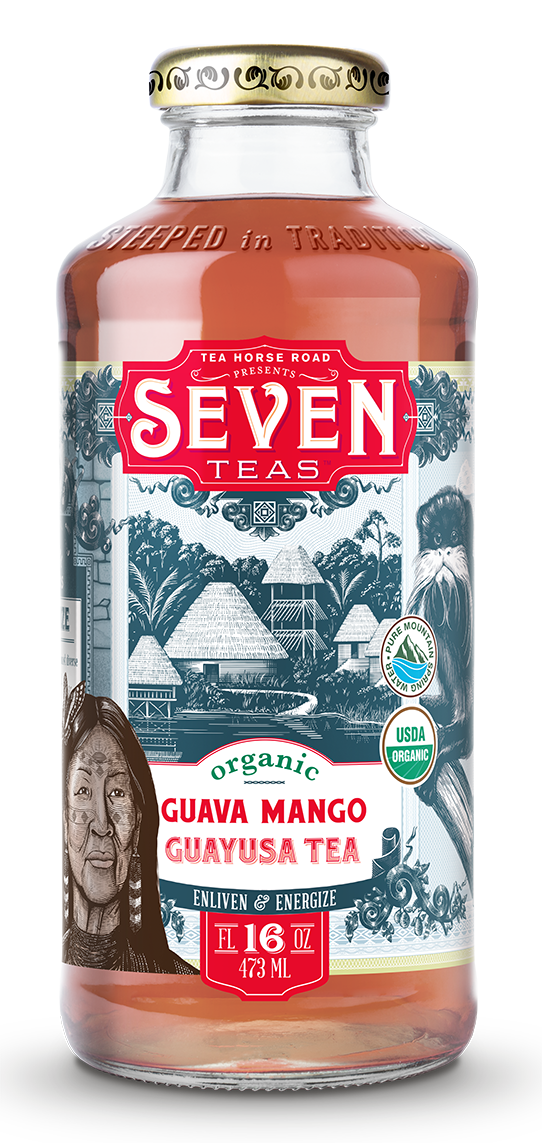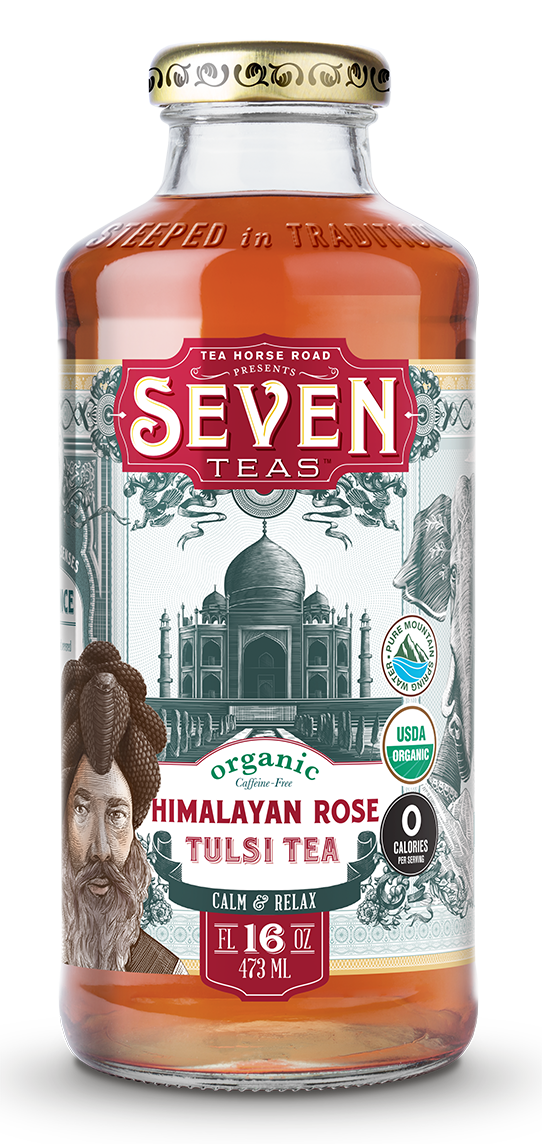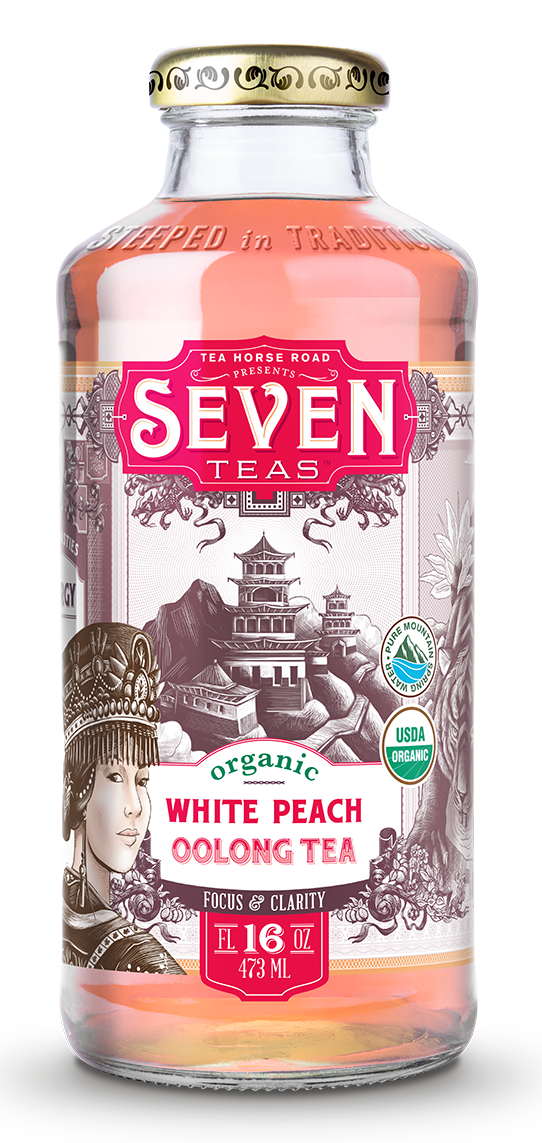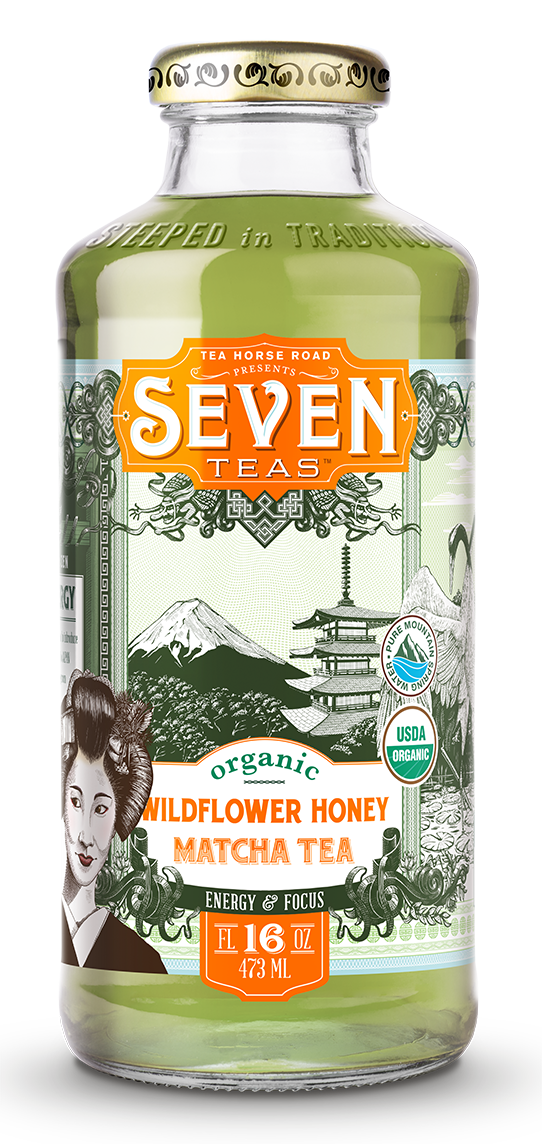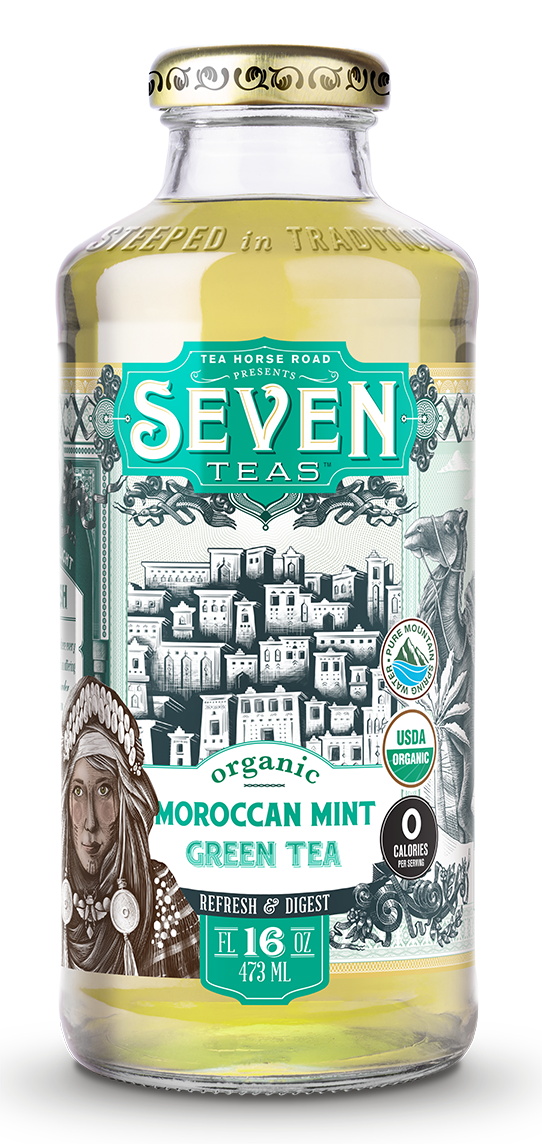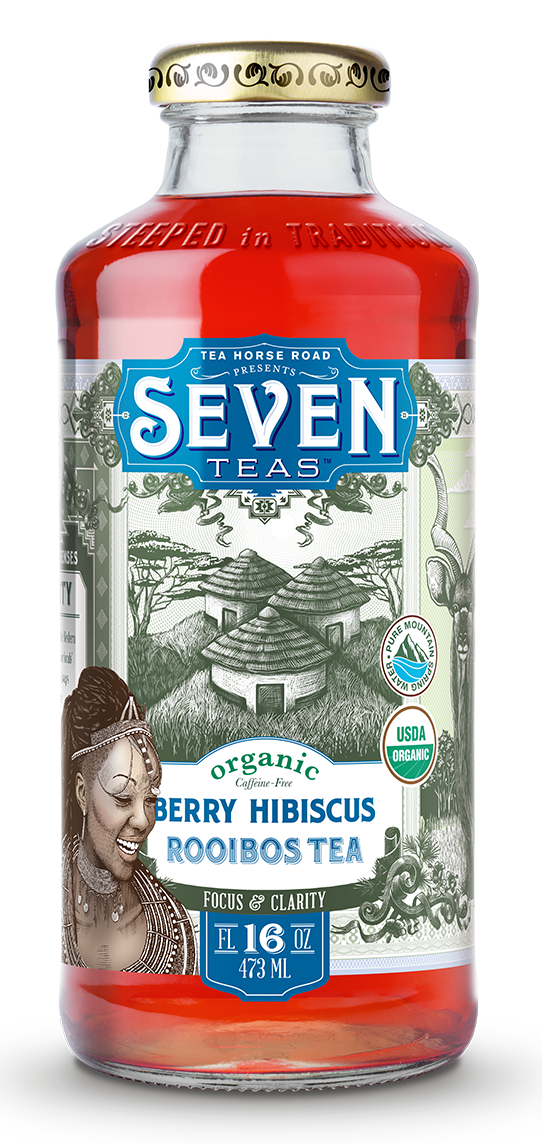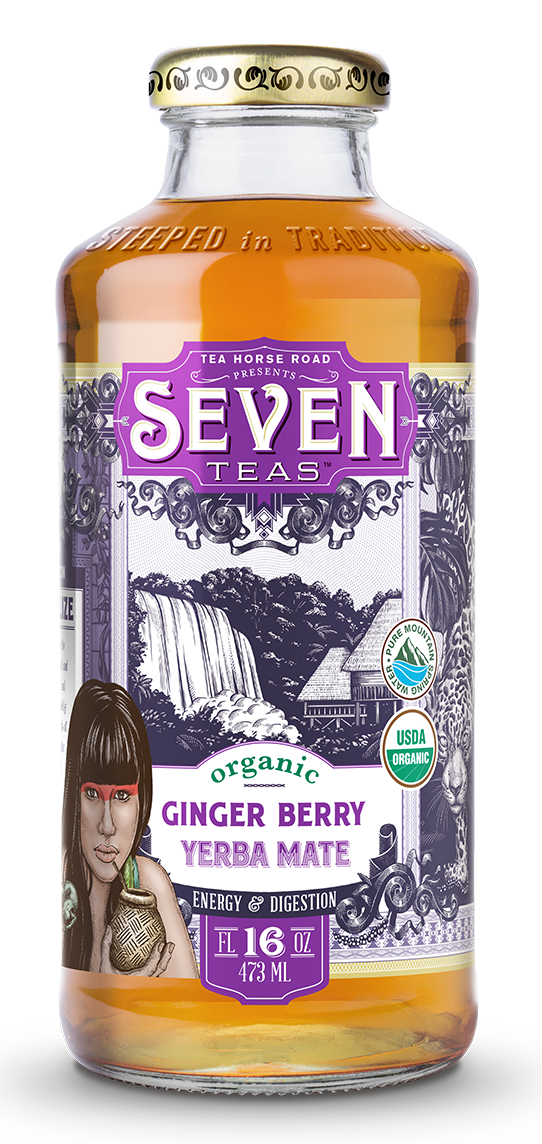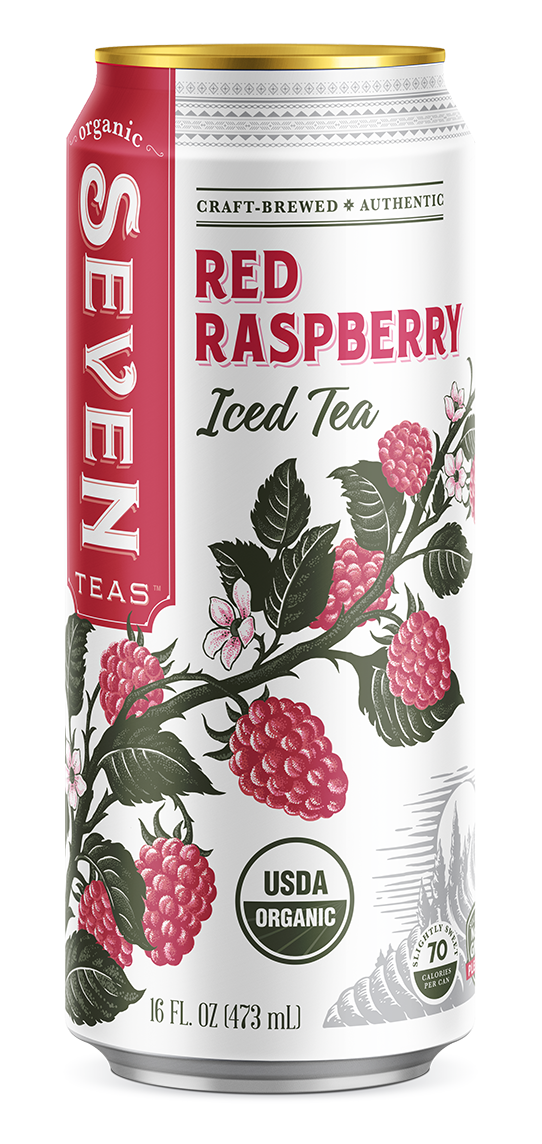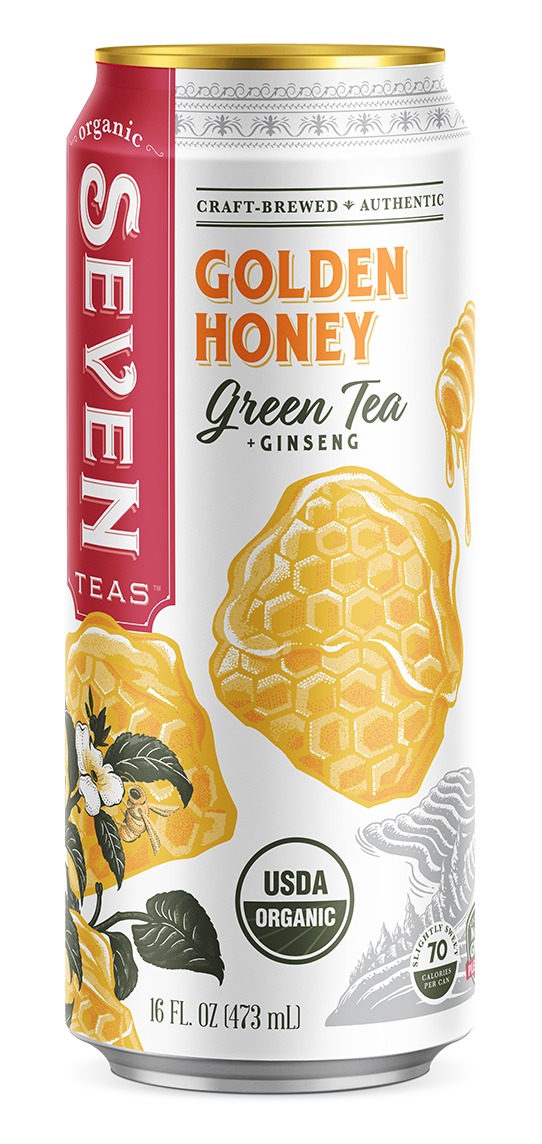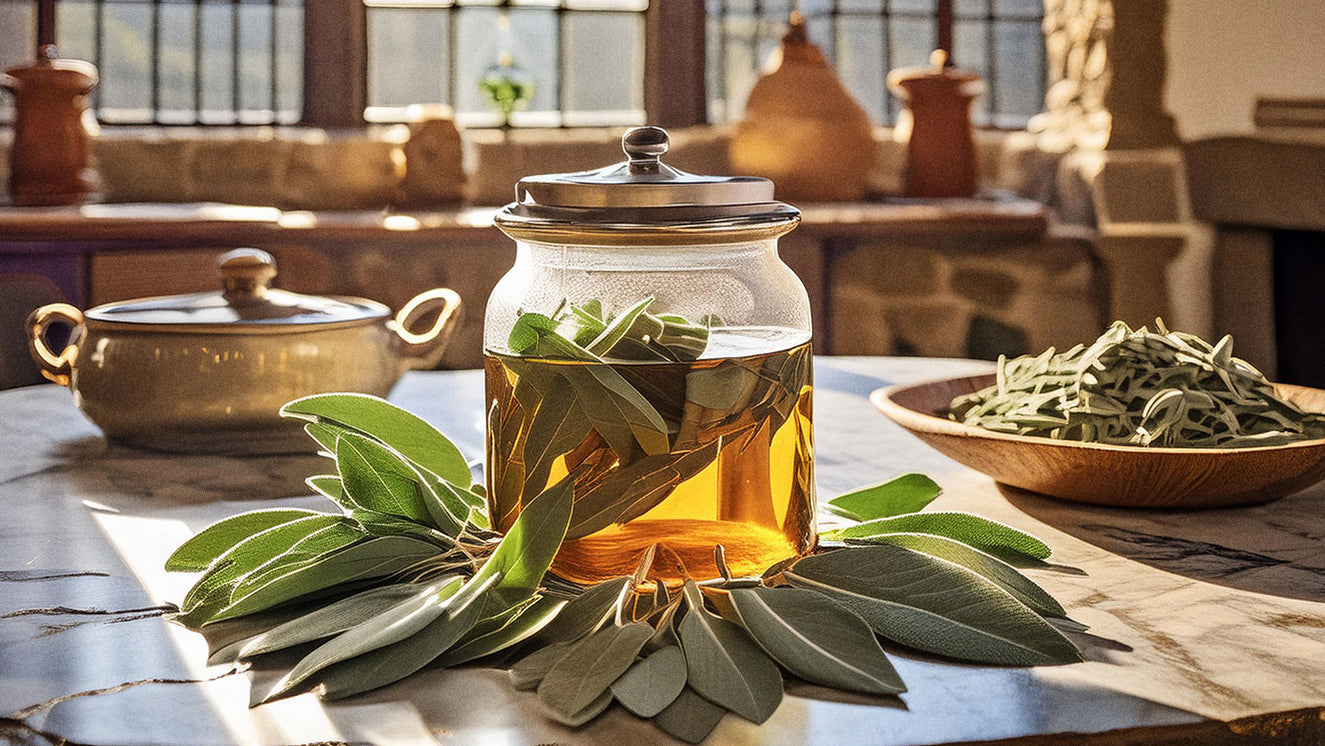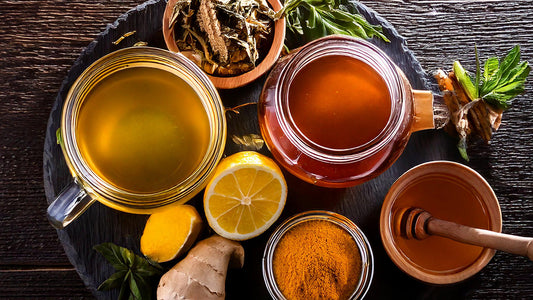Have you heard of sage tea before?
If this is your first time hearing it, then you’re in for a treat, buckle up and get ready to learn some new information about this type of tea. But, if you’ve heard of it before and perhaps want to make it yourself, then we have an easy recipe for you!
Keep reading to discover some interesting facts about this drink as well as how you can create a batch of it within your humble abode.
What is Sage Tea?
Sage tea is a soothing herbal infusion made from the leaves of the sage plant, holds a prominent place in both culinary and medicinal traditions worldwide.
Known for its distinct flavor and potential health benefits, sage tea is crafted by steeping fresh or dried sage leaves in hot water, allowing its aromatic oils and compounds to infuse into the liquid.
With a rich history dating back to ancient civilizations, sage tea has been revered for its therapeutic properties and enjoyed for its calming effects.

The Origin of Sage Tea
Where did sage tea even originate?
Well, the roots of sage tea can be traced back to ancient times, when it was esteemed by various cultures for its medicinal virtues. In ancient Greece and Rome, sage was celebrated for its purported ability to enhance mental clarity and memory, leading to its use in educational and spiritual practices.
Throughout history, sage tea has been an integral part of traditional medicine systems, including Ayurveda in India, where it was valued for its digestive and healing properties, and Native American herbalism, where it was utilized for its cleansing and purifying qualities.
Nowadays, sage cleansing is a lot more commonly associated with the herb, but not a lot know you can actually drink it!
Sage Tea Flavor Profile
If you’re curious about the taste of sage tea, it has a one-of-a-kind flavor profile that may not be everyone’s cup of tea–no pun intended.
Distinctive in taste, sage tea offers a complex flavor profile that marries earthy, slightly bitter, and herbaceous notes. Depending on factors such as the type of sage used, the method of preparation, and brewing time, the taste of sage tea can range from delicate and mild to robust and invigorating. Some compare its flavor to a harmonious blend of peppery warmth with hints of mint and eucalyptus, creating a comforting and aromatic brew that appeals to the senses.
9 Benefits of Drinking Sage Tea
At this point of the blog, we know that sage was widely used back in the day for medicinal purposes, so it’s pretty obvious that sage tea itself holds a lot of benefits. Here are some of the common benefits associated with sage tea.
Boosts Memory
Scientific research suggests that compounds found in sage may possess memory-enhancing properties. Regular consumption of sage tea could potentially support cognitive function and memory retention, making it a popular choice for individuals seeking mental clarity and focus.
Helps with Menopausal Hot Flashes and Night Sweats
Sage tea contains phytoestrogens, plant-based compounds that mimic the effects of estrogen in the body. If you go through menopausal symptoms such as hot flashes and night sweats, incorporating sage tea into your daily routine can bring relief by helping to regulate hormonal fluctuations.
Battles Inflammation
Renowned for its anti-inflammatory properties, sage tea is known to help reduce inflammation throughout the body. By combating inflammation, sage tea has the potential to alleviate symptoms associated with inflammatory conditions such as arthritis, promoting overall well-being and mobility.
Can Lower Cholesterol Levels
Studies suggest that compounds in sage may contribute to lowering cholesterol levels, particularly LDL cholesterol, often called "bad" cholesterol. By incorporating sage tea into a balanced diet and healthy lifestyle, individuals may support cardiovascular health and reduce the risk of heart disease.
Helps Prevent Cancers
Emerging research indicates that sage contains antioxidants and other bioactive compounds that may help prevent the development of certain types of cancer. While further studies are needed to fully understand its mechanisms, preliminary findings suggest that sage tea may offer protective effects against cancer.
Improves Blood Sugar Control
Sage tea may help in regulating blood sugar levels, making it a valuable beverage for individuals with diabetes or those at risk of developing the condition. The compounds found in sage have been shown to enhance insulin sensitivity and promote glucose metabolism, contributing to improved blood sugar control.
Can Also Improve Sleep
With its mild sedative properties, sage tea may promote relaxation and improve sleep quality. For individuals struggling with insomnia or sleep disturbances, a calming cup of sage tea before bedtime could help induce a state of calmness and facilitate a restful night's sleep.
Eases Sore Throat and Tonsillitis
Sage tea possesses antibacterial and anti-inflammatory properties, making it an effective natural remedy for soothing sore throats and alleviating discomfort associated with tonsillitis. Gargling with warm sage tea or simply sipping it slowly can provide relief and promote the healing of irritated throat tissues.
Can Heal Cold Sores
The topical application of cooled sage tea can help heal any cold sores you have, thanks to its antiviral and antimicrobial properties. By dabbing a cotton ball soaked in sage tea onto the affected area several times a day, individuals may reduce inflammation and promote the expedited healing of cold sores.
The Possible Side Effects of Sage Tea
It’s important to drink sage tea in moderation, just like anything else. Overconsumption may lead to possible side effects which are listed below. Keep in mind that what may happen to one person may not necessarily happen to the other, if you’re unsure about consuming this drink, then it’s best to consult your doctor.
Might Trigger Mild Hypertensive Effects
Drinking large quantities of sage tea or using sage supplements may temporarily elevate blood pressure in certain individuals. Those who have hypertension or cardiovascular concerns should exercise caution and consult with a healthcare professional before incorporating sage tea into their daily regimen.
Allergic Reactions
Although it’s rare, allergic reactions to sage tea can occur, particularly to those with known sensitivities to plants in the mint family, such as basil or oregano. Symptoms may include itching, hives, swelling, or difficulty breathing. If allergic reactions occur, it is advisable to discontinue use and seek medical attention promptly.
May Potentially Interfere with Hormone Levels
Due to its phytoestrogen content, excessive consumption of sage tea may disrupt hormone levels in some individuals. Those with hormonal imbalances or conditions affected by estrogen levels should monitor their intake of sage tea and consult with a healthcare provider if they’re concerned about potential hormonal effects.
Can Manifest Digestive Discomfort
In some instances, drinking sage tea in large quantities or on an empty stomach may lead to digestive discomfort, such as nausea, stomach cramps, or diarrhea. To minimize the risk of digestive issues, it is recommended to consume sage tea in moderation and preferably with food.
How Many Cups of Sage Tea Can You Drink Daily?
Even though sage tea offers numerous health benefits, moderation is key to its consumption. As a general guideline, individuals can safely consume three to six cups of sage tea per day. However, everyone has a different tolerance level, necessitating an attentive approach to personal consumption habits and potential side effects.
How to Make Sage Tea
Congrats, you can now consider yourself a sage tea graduate! Now that you know the basics of sage tea, it’s time to learn how to make yourself a cup!
Brewing sage tea is just like brewing any other type of tea! If this isn’t your first time brewing tea, then you already have an idea of the step-by-step process.
What You Need:
- Fresh or dried sage leaves
- Water
Instructions
- Bring water to a boil in a kettle or saucepan.
- Place fresh or dried sage leaves in a teapot or heatproof container.
- Pour the boiling water over the sage leaves.
- Allow the tea to steep for 5 to 10 minutes, adjusting the steeping time based on your desired strength.
- Strain the tea to remove the sage leaves.
- Serve hot, or allow the tea to cool for iced sage tea.
- Sweeten with honey or a natural sweetener to taste, if desired.
- Enjoy the aromatic and flavorful homemade sage tea!
Conclusion
Sage tea stands as a testament to the age-old wisdom of herbal remedies, offering both a delightful sensory experience and a host of potential health benefits.
From boosting cognitive function and alleviating menopausal symptoms to combating inflammation and supporting cardiovascular health, the virtues of sage tea are as diverse as they are profound. While sage tea is generally safe for most individuals when consumed in moderation, it is essential to remain mindful of potential side effects and consult with a healthcare professional if warranted.
So why not embark on a journey of wellness and flavor by brewing a comforting cup of sage tea today? Your body and mind may thank you for it.
Craving for high-quality brewed teas? Check out Seven Teas’ collection of delicious and organic teas that come in a variety of complex and refreshing flavors! Add ‘em to your cart or find a store near you!
